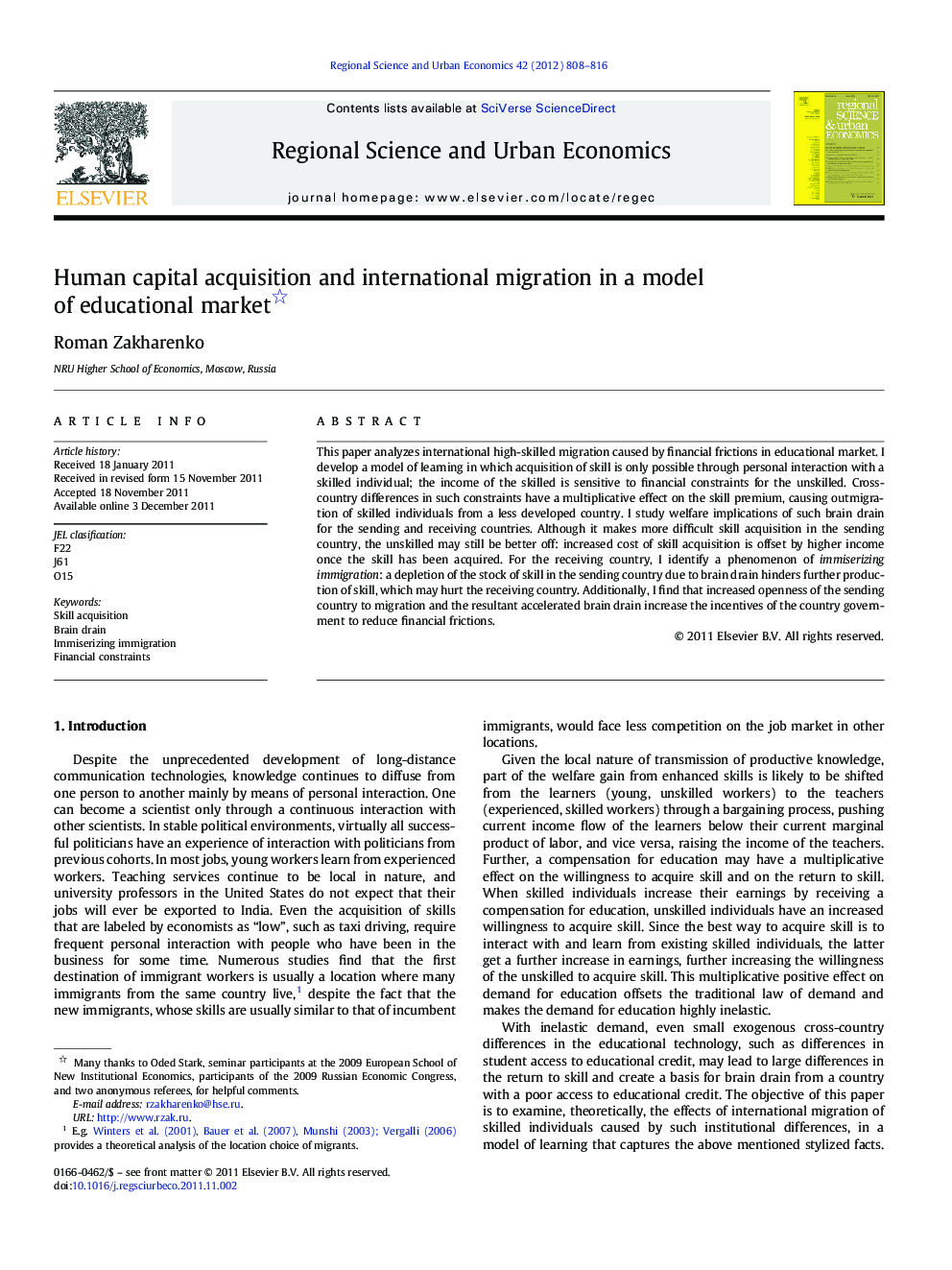| Article ID | Journal | Published Year | Pages | File Type |
|---|---|---|---|---|
| 983716 | Regional Science and Urban Economics | 2012 | 9 Pages |
This paper analyzes international high-skilled migration caused by financial frictions in educational market. I develop a model of learning in which acquisition of skill is only possible through personal interaction with a skilled individual; the income of the skilled is sensitive to financial constraints for the unskilled. Cross-country differences in such constraints have a multiplicative effect on the skill premium, causing outmigration of skilled individuals from a less developed country. I study welfare implications of such brain drain for the sending and receiving countries. Although it makes more difficult skill acquisition in the sending country, the unskilled may still be better off: increased cost of skill acquisition is offset by higher income once the skill has been acquired. For the receiving country, I identify a phenomenon of immiserizing immigration: a depletion of the stock of skill in the sending country due to brain drain hinders further production of skill, which may hurt the receiving country. Additionally, I find that increased openness of the sending country to migration and the resultant accelerated brain drain increase the incentives of the country government to reduce financial frictions.
► Assumption: skill acquisition is only possible via interaction with skilled agents. ► Income of skilled is thus sensitive to ability of unskilled to fund education. ► Cross-country heterogeneity creates basis for brain drain. ► Welfare implications are ambiguous for sending and receiving country. ► Brain drain increases incentives of sending country to improve educational sector.
